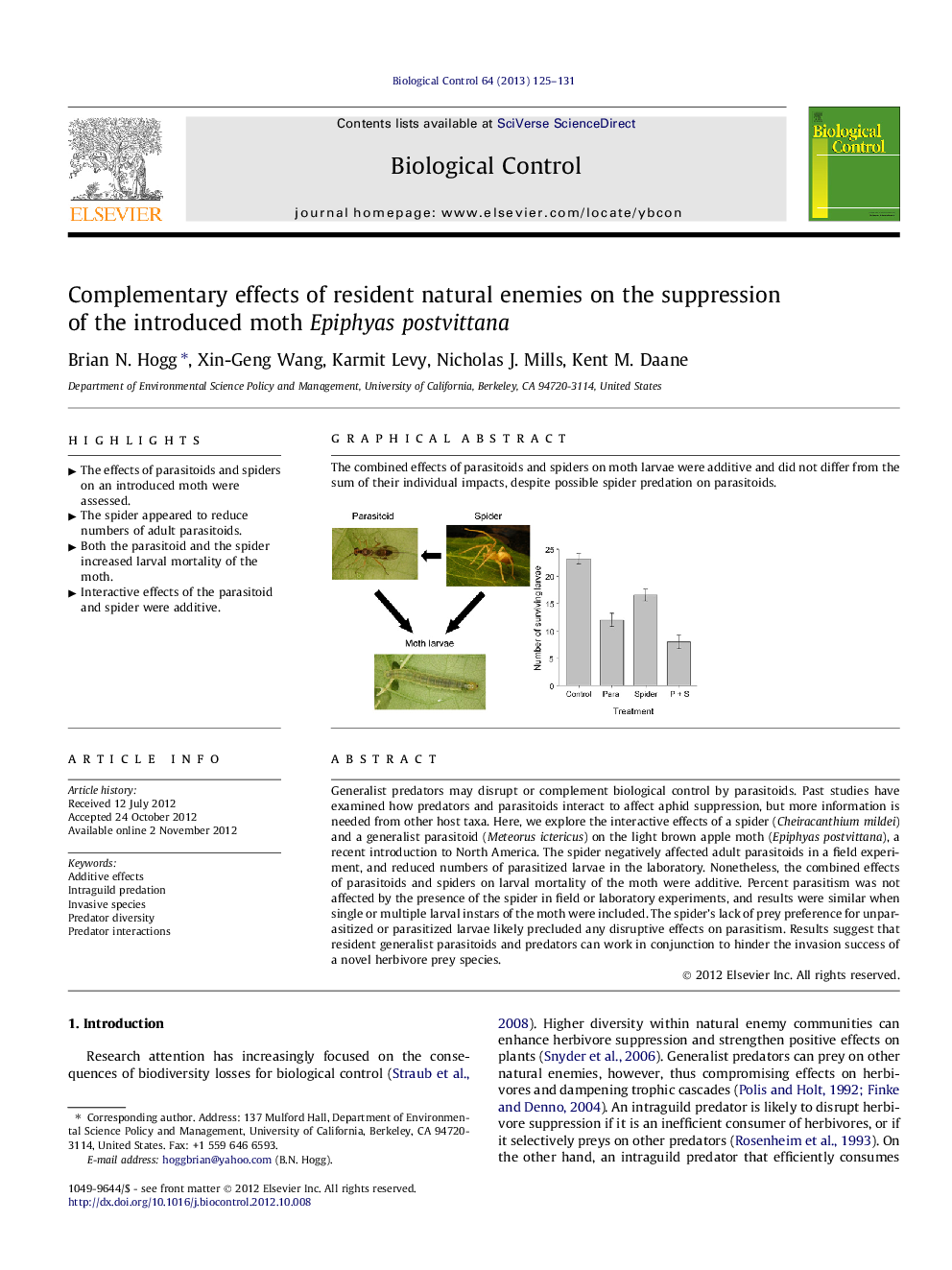| Article ID | Journal | Published Year | Pages | File Type |
|---|---|---|---|---|
| 6372841 | Biological Control | 2013 | 7 Pages |
Generalist predators may disrupt or complement biological control by parasitoids. Past studies have examined how predators and parasitoids interact to affect aphid suppression, but more information is needed from other host taxa. Here, we explore the interactive effects of a spider (Cheiracanthium mildei) and a generalist parasitoid (Meteorus ictericus) on the light brown apple moth (Epiphyas postvittana), a recent introduction to North America. The spider negatively affected adult parasitoids in a field experiment, and reduced numbers of parasitized larvae in the laboratory. Nonetheless, the combined effects of parasitoids and spiders on larval mortality of the moth were additive. Percent parasitism was not affected by the presence of the spider in field or laboratory experiments, and results were similar when single or multiple larval instars of the moth were included. The spider's lack of prey preference for unparasitized or parasitized larvae likely precluded any disruptive effects on parasitism. Results suggest that resident generalist parasitoids and predators can work in conjunction to hinder the invasion success of a novel herbivore prey species.
Graphical abstractThe combined effects of parasitoids and spiders on moth larvae were additive and did not differ from the sum of their individual impacts, despite possible spider predation on parasitoids.Download full-size imageHighlights⺠The effects of parasitoids and spiders on an introduced moth were assessed. ⺠The spider appeared to reduce numbers of adult parasitoids. ⺠Both the parasitoid and the spider increased larval mortality of the moth. ⺠Interactive effects of the parasitoid and spider were additive.
